WiRED International Wraps up its 19th Year, Prepares for the 20th
BY ALLISON KOZICHAROW AND BERNICE BORN
T
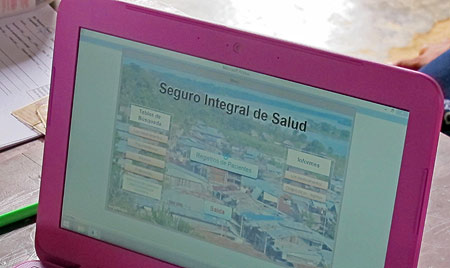
Electronic Medical Record System
he WiRED International team chalked up a number of accomplishments in 2016 to advance global health education, as we prepared for the organization’s 20th anniversary. WiRED provided new and updated modules on some of the planet’s most threatening illnesses. WiRED prepared several new collections of modules to package complete training courses for medical professionals and general audiences. WiRED developed a portable field health record system to allow doctors and first responders, working entirely off the grid, to maintain electronic health records for patients anywhere in the world. The system requires no Internet, phone system or power — other than the sun for solar charging. WiRED supported the efforts of many people in low-resource regions, expanding the availability of cost-free health education. WiRED did a lot more, too, as we describe in this story.
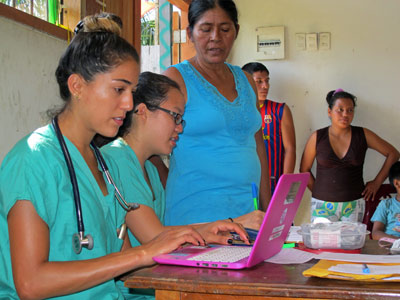 Medical record collection, Amazon, Peru
Medical record collection, Amazon, Peru
WiRED continued coverage of Zika’s frightening trajectory by creating modules for health professionals and general audiences and translating them into Spanish and Portuguese. Last year, WiRED was the first nongovernmental organization to release health information on the Zika virus, which few people had heard of until then. This year, we created a Web page devoted to the mosquito — the carrier of so many diseases, including Zika, dengue, yellow fever, malaria and chikungunya.
Although WiRED offers rapid response modules to address global health emergencies such as Zika or Ebola, we stressed prevention, vaccination and general health education as keys to protecting communities in developing areas of the world. To that end, in 2016 WiRED grouped modules into training collections on topics such as cancer, diabetes, HIV/AIDS and rheumatic heart disease. Next year, we plan to expand the collections to include infectious diseases, nutrition and mother and child health, among others. Each of these collections is available now for instant downloading, which allows communities to take complete programs into the field and conduct training sessions off the grid.
Working off the grid has become an essential part of WiRED’s health education effort, as most communities in remote and low-resource regions are overlooked by other training programs. Dr. Devon Gram, Director of Project Amazonas says, “The Spanish-language health modules and the computer and AV equipment provided by WiRED allow us to take health education to where the people are — the isolated riverside communities of the many tributaries of the Amazon. The WiRED modules allow us to integrate education and treatment effectively in the Amazon.”
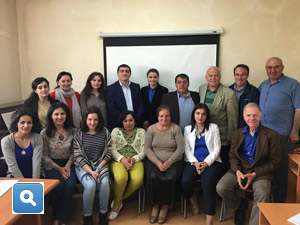 Third Consultative Meeting attendees of the Armenian Centers for Health Education of Wired International.
Third Consultative Meeting attendees of the Armenian Centers for Health Education of Wired International.
At the end of last year, WiRED began the Community Health Education Initiative in Honor of Ambassador J. Christopher Stevens. Early in 2017 we will launch the Chris Stevens Community Preparedness Project, which provides an integrated collection of training courses to help small communities prepare for the incursion of such infectious diseases as Ebola, Zika, Chagas and more than 35 other illnesses that plague people around the world. Ambassador Stevens was a strong advocate of community health and training, and this project will honor his commitment to low-resource communities.
This year, WiRED grew its programs in Peru, Armenia and Kenya. We introduced a Field Health Record System that our partner, Project Amazonas, will use in its clinical work along isolated parts of the Amazon. Throughout 2017, we plan to expand the scope of this computer-based record system. In Armenia, together with our partner WiRED Armenia, we worked to ease access to critical health information. We continued our popular certificate program, and, this year, graduated 62 Kenyans, who completed their examinations on a broad range of health topics.
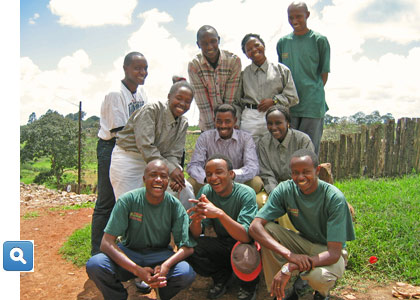 The group of young people from Kiambu who went to
The group of young people from Kiambu who went to
Mombasa in 2002 to receive computer training from WiRED.
John Oduor Wanjir is in the lower left portion of the group.
We saw WiRED programs used for the first time in Kenyan prisons through an outreach program steered by John Oduor Wanjir, a Kenyan man who learned computer skills from WiRED 14 years ago. In 2002, he attended a WiRED training in Mombasa, where WiRED’s Director Gary Selnow, Ph.D., taught a small group of young people basic computer and health research skills. From that beginning, John, who set up his own nongovernmental organization, now uses WiRED health education programs to teach men in two Kenyan prisons about health. John says, “My friends and I were the first in Africa to get hands-on training with WiRED health programs. My passion for health education will continue to enable me to serve the less fortunate persons in the community.”
In 2016, WiRED created new modules on topics such as yellow fever, cholera, sexually transmitted infections and obstetric fistula, and we revamped existing modules, including those on dengue and hepatitis.
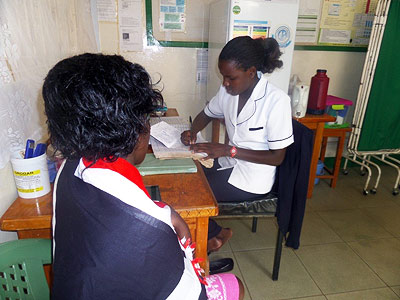 Alice Olwino
Alice Olwino
KUAP Pandipieri Center in Kisumu, Kenya
WiRED’s products and services provide interactive training packages, animations, videos, online services, translations and database programs. Currently, nearly 100 of WiRED’s modules have been translated into Spanish, Portuguese, Armenian, Mandarin, Arabic and French.
In addition, WiRED tackled threats including climate change, noting that environmental health hazards hit underserved populations hardest, especially children under age five and adults over 50. In many of our modules, such as those on asthma, clean water, smoking and cancer, WiRED emphasizes disease prevention through maintaining healthy environments.
One of the preventable illnesses that WiRED has focused on during the past few years is rheumatic heart disease (RHD), a chronic heart condition that starts with strep throat. In order to disseminate RHD information more widely, WiRED translated the RHD modules for teachers and students into Spanish, French, Portuguese and Arabic. An RHD animation is now available in English, Spanish and Portuguese.
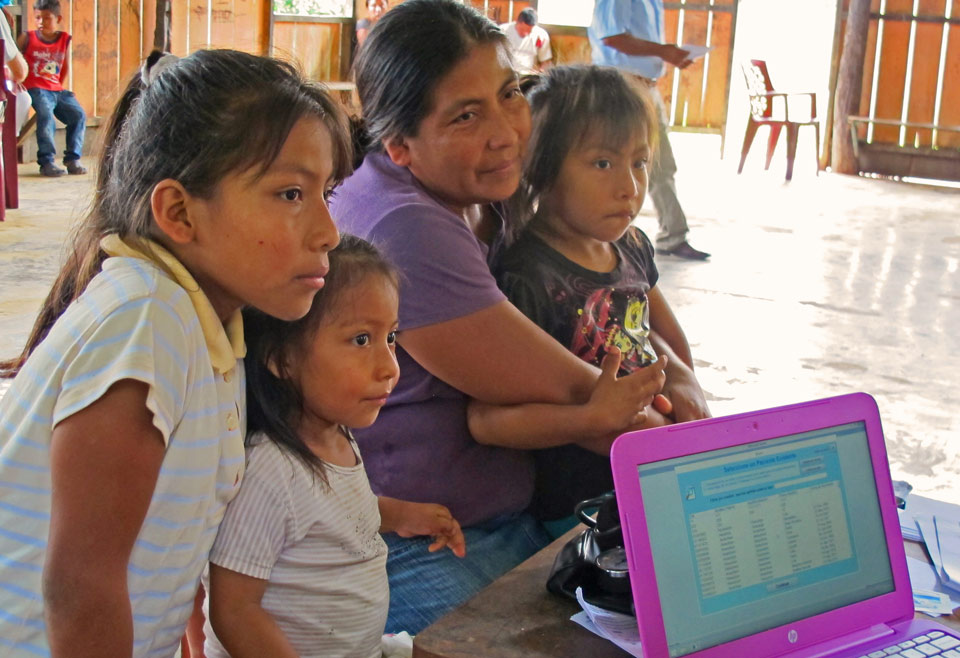 Medical record collection, Amazon, Peru
Medical record collection, Amazon, Peru
Throughout the past year, the WiRED website featured two stories per week while launching our modules. The stories covered such issues as good nutrition and the danger of antibiotic resistance. WiRED observed health days and months and featured people who took WiRED programs into the field. Also, we expanded our Facebook page and boosted its membership. As a result, 1.2 million people accessed WiRED’s Facebook post on Zika.
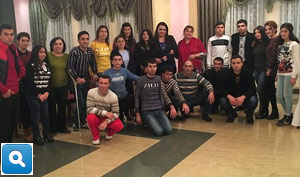 Health education students in Sisyan, Armenia
Health education students in Sisyan, Armenia
We believe that neither WiRED nor any other outside organization alone can successfully foster programs like these in communities. For WiRED’s programs to work, doctors, community leaders, teachers, students and local people must get involved. WiRED makes the tools for accessing community health education available so that people can take control of their own health. We depend on health professionals and partners from the Amazon to Haiti to Botswana to China to carry our programs the last mile and engage the community in ways that outsiders cannot. For instance, in Kisumu, Kenya, Sr. Bernadette Nealon, Health Director of Kisumu Urban Apostolate Programme-Pandipieri, said, “Our goal is to make this medical and health information as widely available as possible to the people who need it most. WiRED charges nothing for these materials.”
We at WiRED, along with our tireless volunteers, are planning an exciting and productive 2017 — our 20th anniversary of commitment to global health education. We urge you to join us as we strive to raise the quality of health knowledge and illness prevention in remote and medically-starved communities worldwide.
^ Back to the Top |





